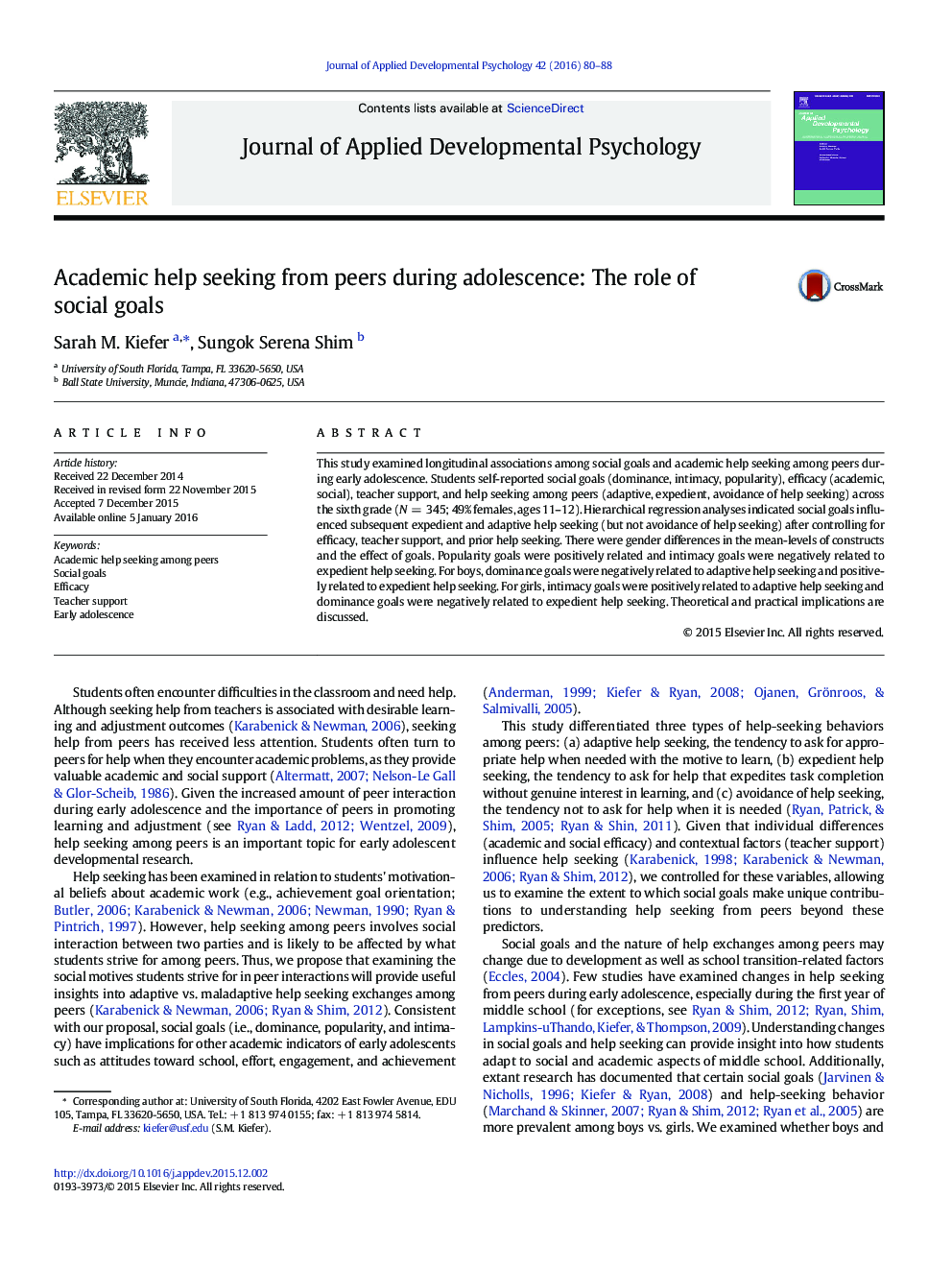| Article ID | Journal | Published Year | Pages | File Type |
|---|---|---|---|---|
| 6842862 | Journal of Applied Developmental Psychology | 2016 | 9 Pages |
Abstract
This study examined longitudinal associations among social goals and academic help seeking among peers during early adolescence. Students self-reported social goals (dominance, intimacy, popularity), efficacy (academic, social), teacher support, and help seeking among peers (adaptive, expedient, avoidance of help seeking) across the sixth grade (NÂ =Â 345; 49% females, ages 11-12). Hierarchical regression analyses indicated social goals influenced subsequent expedient and adaptive help seeking (but not avoidance of help seeking) after controlling for efficacy, teacher support, and prior help seeking. There were gender differences in the mean-levels of constructs and the effect of goals. Popularity goals were positively related and intimacy goals were negatively related to expedient help seeking. For boys, dominance goals were negatively related to adaptive help seeking and positively related to expedient help seeking. For girls, intimacy goals were positively related to adaptive help seeking and dominance goals were negatively related to expedient help seeking. Theoretical and practical implications are discussed.
Related Topics
Social Sciences and Humanities
Psychology
Applied Psychology
Authors
Sarah M. Kiefer, Sungok Serena Shim,
